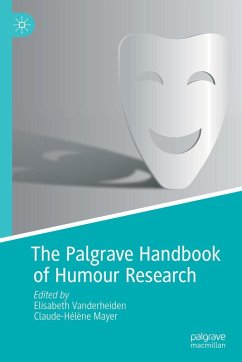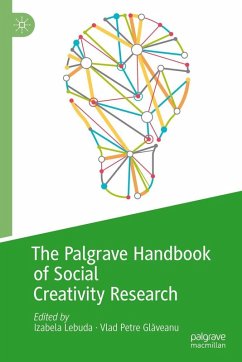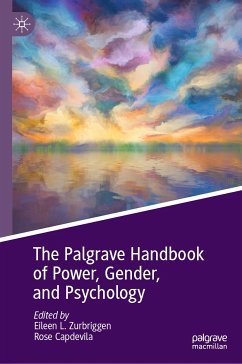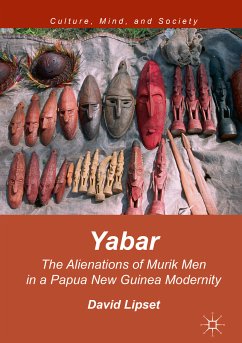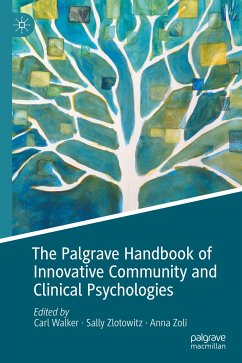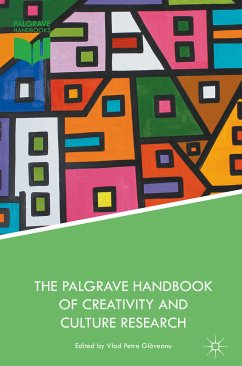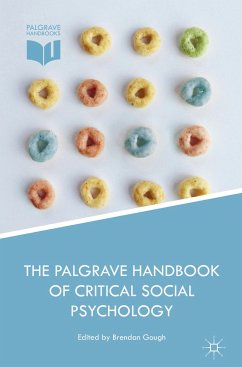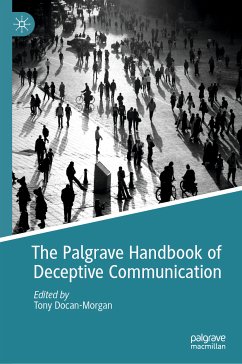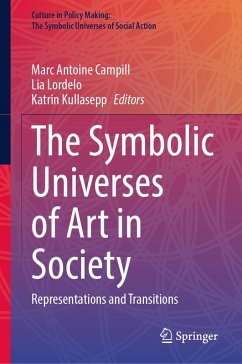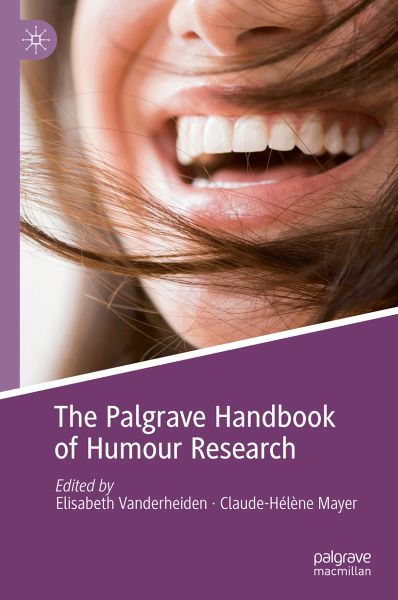
The Palgrave Handbook of Humour Research (eBook, PDF)
Versandkostenfrei!
Sofort per Download lieferbar
191,95 €
inkl. MwSt.
Weitere Ausgaben:

PAYBACK Punkte
96 °P sammeln!
This handbook is the updated and expanded second edition of a highly cited and impactful collection, which provides new perspectives on humour from transdisciplinary perspectives. The collection's focus is on humour as a resource from different socio-cultural and psychological viewpoints, bringing together authors from different cultures, social contexts and countries. The handbook enables researchers and practitioners to unlock research findings which give new directions for contemporary and future humour research.By employing transdisciplinary and transcultural perspectives, the volume furth...
This handbook is the updated and expanded second edition of a highly cited and impactful collection, which provides new perspectives on humour from transdisciplinary perspectives. The collection's focus is on humour as a resource from different socio-cultural and psychological viewpoints, bringing together authors from different cultures, social contexts and countries. The handbook enables researchers and practitioners to unlock research findings which give new directions for contemporary and future humour research.
By employing transdisciplinary and transcultural perspectives, the volume further discusses humour in regard to different cultural and political contexts, humour over the lifespan, in therapy and counselling, in pedagogical settings, in medicine and the workspace. The contributions also highlight the connections between humour and the COVID-19 pandemic and promise new inspiring insights. This second edition includes a new introduction from the editors, updates to the majority of the chapters, and five new chapters which take a humour-research approach to contemporary issues such as the Russian-Ukrainian crisis, the consequences of the pandemic, and tackles developments related to artificial intelligence and gamification. With an expanded scope, this handbook will continue to appeal to researchers, practitioners and students in the fields of industrial and organisational psychology, positive psychology, organisational studies, future studies, health and occupational science and therapy, who will find each chapter highly topical, insightful and applicable to practice.
By employing transdisciplinary and transcultural perspectives, the volume further discusses humour in regard to different cultural and political contexts, humour over the lifespan, in therapy and counselling, in pedagogical settings, in medicine and the workspace. The contributions also highlight the connections between humour and the COVID-19 pandemic and promise new inspiring insights. This second edition includes a new introduction from the editors, updates to the majority of the chapters, and five new chapters which take a humour-research approach to contemporary issues such as the Russian-Ukrainian crisis, the consequences of the pandemic, and tackles developments related to artificial intelligence and gamification. With an expanded scope, this handbook will continue to appeal to researchers, practitioners and students in the fields of industrial and organisational psychology, positive psychology, organisational studies, future studies, health and occupational science and therapy, who will find each chapter highly topical, insightful and applicable to practice.
Dieser Download kann aus rechtlichen Gründen nur mit Rechnungsadresse in A, B, BG, CY, CZ, D, DK, EW, E, FIN, F, GR, HR, H, IRL, I, LT, L, LR, M, NL, PL, P, R, S, SLO, SK ausgeliefert werden.



